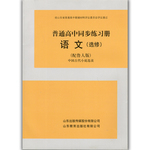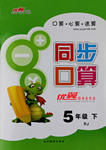题目内容
_____________ we all know is that destroying nature means destroying ourselves.
- A.what
- B.Which
- C.That
- D.It
试题分析:考查主语从句。本题中的what we all know是一个主语从句,what引导起该从句,并在句中作为动词know的宾语。句意:我们都知道的事情是破坏大自然就意味着毁灭我们自己。It不能引导主语从句,that在主语从句不充当任何成分,which是指特定范围之内的某一个。故A正确。
考点:考查主语从句
点评:主语从句是在复合句中充当主语的从句,通常放在主句谓语动词之前或由形式主语it代替,而本身放在句子末尾。解答这类题目,关键在于分析清楚句子结构。通过判断引导词在从句中所作的成分及意义,来选择正确的引导词。连接主语从句的从属连词主要有that, if, whether,和疑问词(what how where when ...)。that引导表示陈述句的主语从句,if和whether,whether...or not引导表示“是否”,引导一般疑问句。连接代词主要有who,whom,whose,what,whoever,whomever,whosever,whatever,whichever等。连接代词一般指疑问,但what, whatever除了指疑问外,也可以指陈述。连接副词主要有when, where, why, how, whenever, wherever, however等.

 海淀黄冈名师导航系列答案
海淀黄冈名师导航系列答案 普通高中同步练习册系列答案
普通高中同步练习册系列答案 优翼小帮手同步口算系列答案
优翼小帮手同步口算系列答案第三节:书面表达(满分25分)
假如你们学校“英语爱好者俱乐部”将对“良好饮食习惯”这一话题进行讨论。
请根据下列提示,用英语写一篇发言稿。
内容要点应包括:
|
部分同学的饮食习惯 |
良好的饮食习惯 |
个人看法 |
|
不吃早餐 爱吃零食 偏食 饮食过量 |
饮食多样化 饮食定时定量 |
重要性;有助于身体健康 |
注意:1.发言稿必须包括所有内容要点,可适当发挥;
2.发言稿开头与结尾已为你写好,不计入总词数;
3.词数:100左右.
4.参考词汇: 偏食 be particular about food 零食 snack
饮食多样化 have various healthy diets 有规则地 regularly
Dear friends,
As we all know, we are what we eat. Therefore, it’s very important for us to form healthy eating habits.
____________________________________________________________________________________________________________________________________________________________________________________________________________________________________________________________________________________________________________________________________________________________________________________________________________That’s all. Thank you!